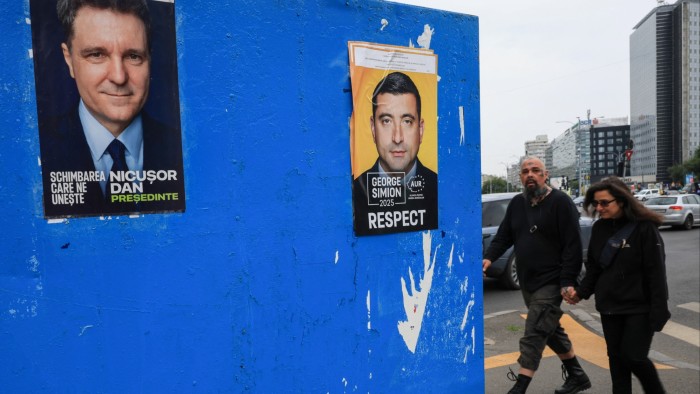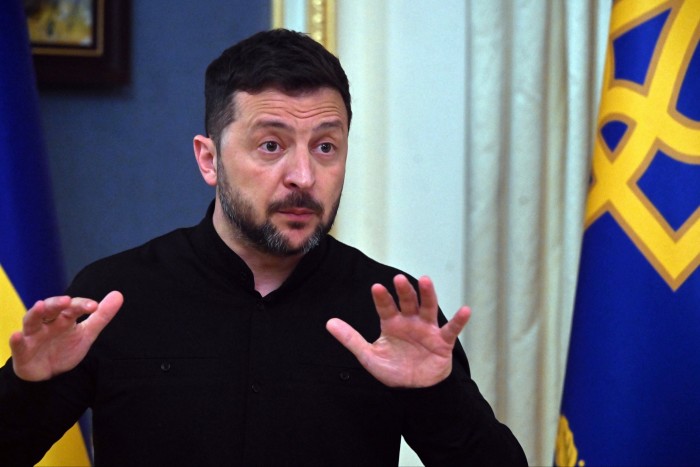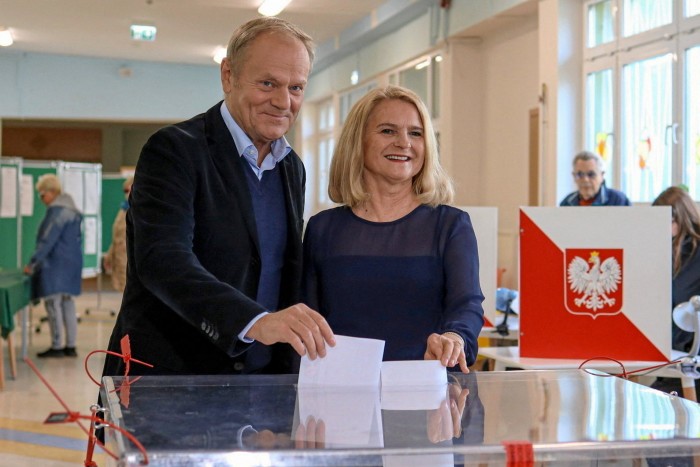Europe’s far right is hammering at the door of power

Unlock the Editor’s Digest for free
Roula Khalaf, Editor of the FT, selects her favourite stories in this weekly newsletter.
Nicuşor Dan, the pro-EU mayor of Bucharest, snatched victory from the jaws of ultranationalist George Simion in Romania’s presidential election last week. European leaders celebrated. Dan will keep Romania on the democratic, pro-EU, pro-Nato path it has followed since communism fell. Simion would have taken it in the opposite direction to a darker place, so it is good for Romania and Europe that he lost.
But the former football hooligan, who is banned from entering Ukraine or Moldova, still won a remarkable 46 per cent of the vote. He is down but not out. Unless Dan can somehow usher in an ambitious reformist government, Simion and his AUR party, the second largest in parliament, will draw strength from continued political turmoil, necessary austerity measures and public disgust with self-serving establishment parties.
Romania is part of a bigger European story. Far-right or nationalist populist parties are hammering at the door of power. The far-right won elections in Austria and the Netherlands and the nationalist conservative Giorgia Meloni is governing, pragmatically so far, in Italy. Radical right parties have taken second place in several others, most notably Germany and recently in Portugal. Being pro-Trump has not proved to be the political liability in Europe it was in Canada or Australia.
The next test for the pro-EU mainstream is the second round of Poland’s presidential election, next Sunday. If the candidate for the nationalist conservative Law and Justice (PiS) party Karol Nawrocki beats the centre-right Rafał Trzaskowski he is likely to block the coalition government’s attempts to restore judicial independence and other democratic reforms as outgoing President Andrzej Duda has done. The government’s survival may be at stake.
Poland also illustrates another disturbing feature of Europe’s hard right: being more extreme can attract rather than repel voters. Two candidates outflanked Nawrocki on the far right in the first round, arguing that PiS was too much of an establishment party. They won a combined 21 per cent. Austria’s Freedom party (FPÖ) won last year’s elections and Alternative for Germany (AfD) came second in February after embracing “remigration”, or sending immigrants and even citizens back to their countries of origin.
Some argue making radical right parties share the responsibilities of power can deflate their anti-establishment appeal. It has worked to some degree in Nordic countries, but Austria is a powerful counter example. Some parties such as the AfD and individuals such as FPÖ leader Herbert Kickl pose too much of a threat to democratic norms and the rule of law to be empowered by mainstream coalition partners.
Many mainstream conservative parties have tried to take on hard-right challengers through mimicry. This tends not to work, especially when the imitation is mostly rhetorical. Voters tend to prefer the original. But it is foolish to think that voters’ concerns can be explained away rather than addressed. Concerns over uncontrolled immigration are an obvious example.
With the pandemic, high inflation and war, the past five years have been a bonanza for populists in Europe. These factors will dissipate but anti-establishment anger is here to stay, fuelled by a narrative of elite betrayal. This is all the more the case as electorates fragment and wider coalitions are needed to govern.
Aided by social media, Europe’s populists have become masters at polarisation, simplification and denunciation. Moderate parties need bolder policymaking, visible delivery and more compelling personalities to counter them. Plodding centrism will not do it. If they do not start to deliver, rightwing parties that are coming second now could win next time.





